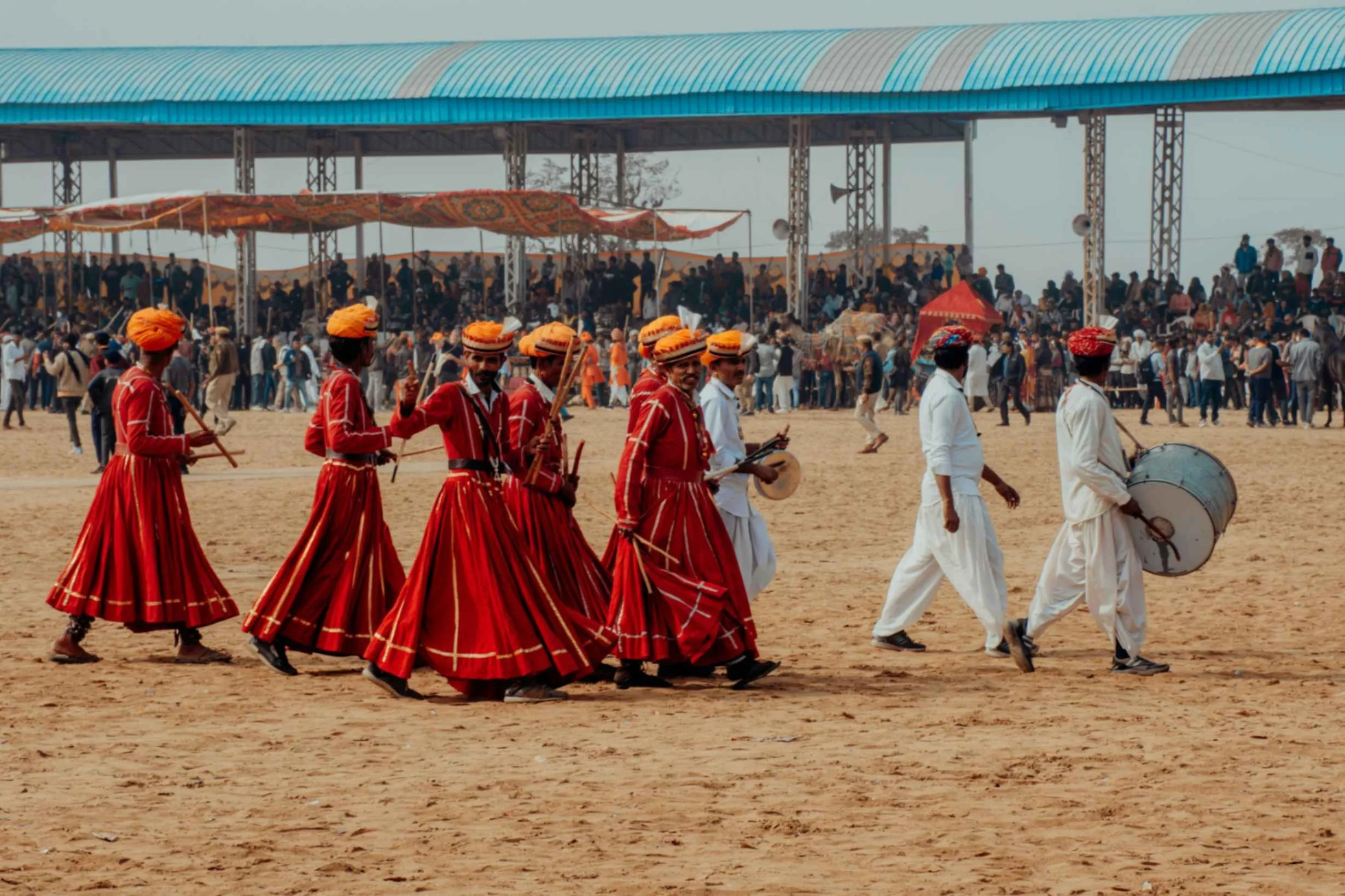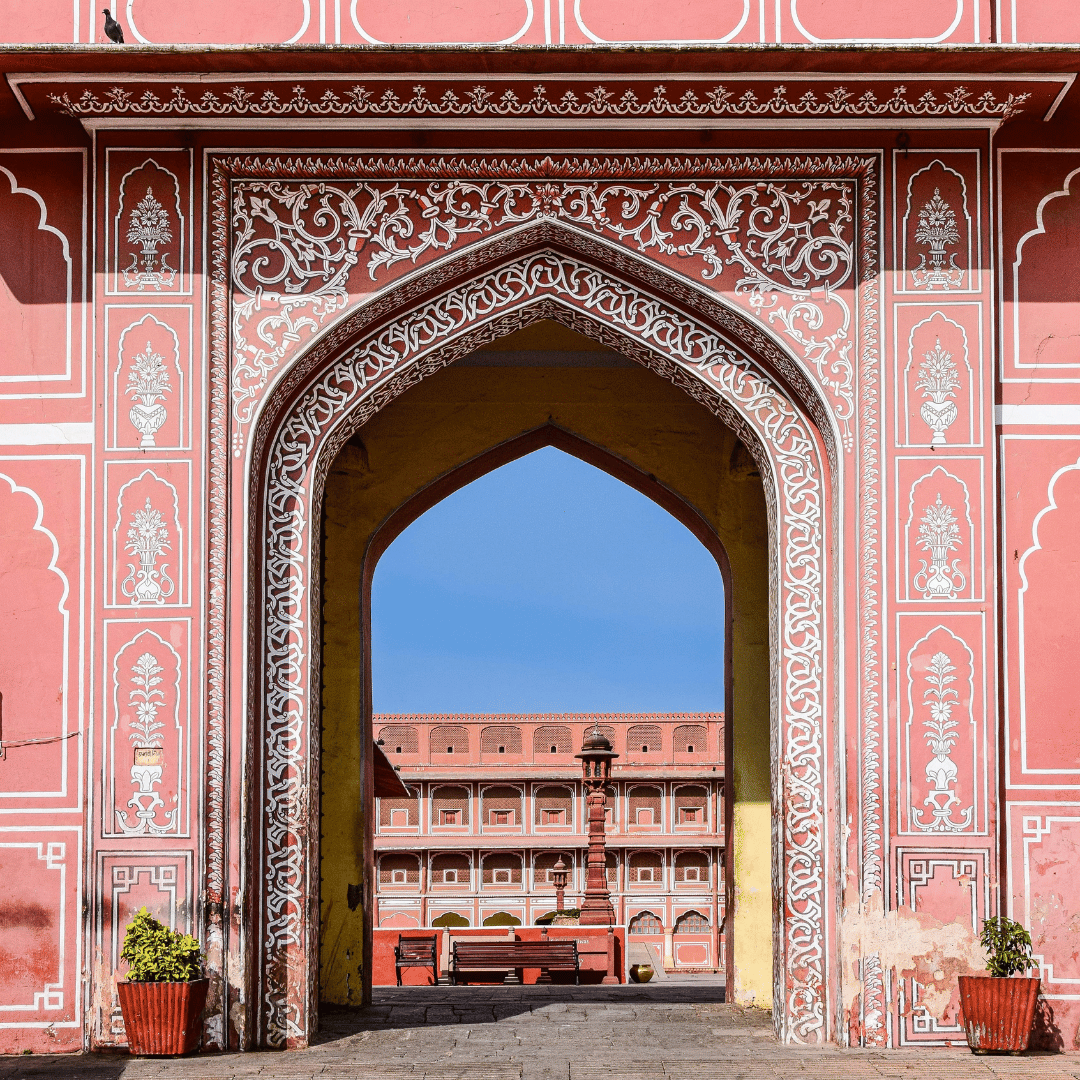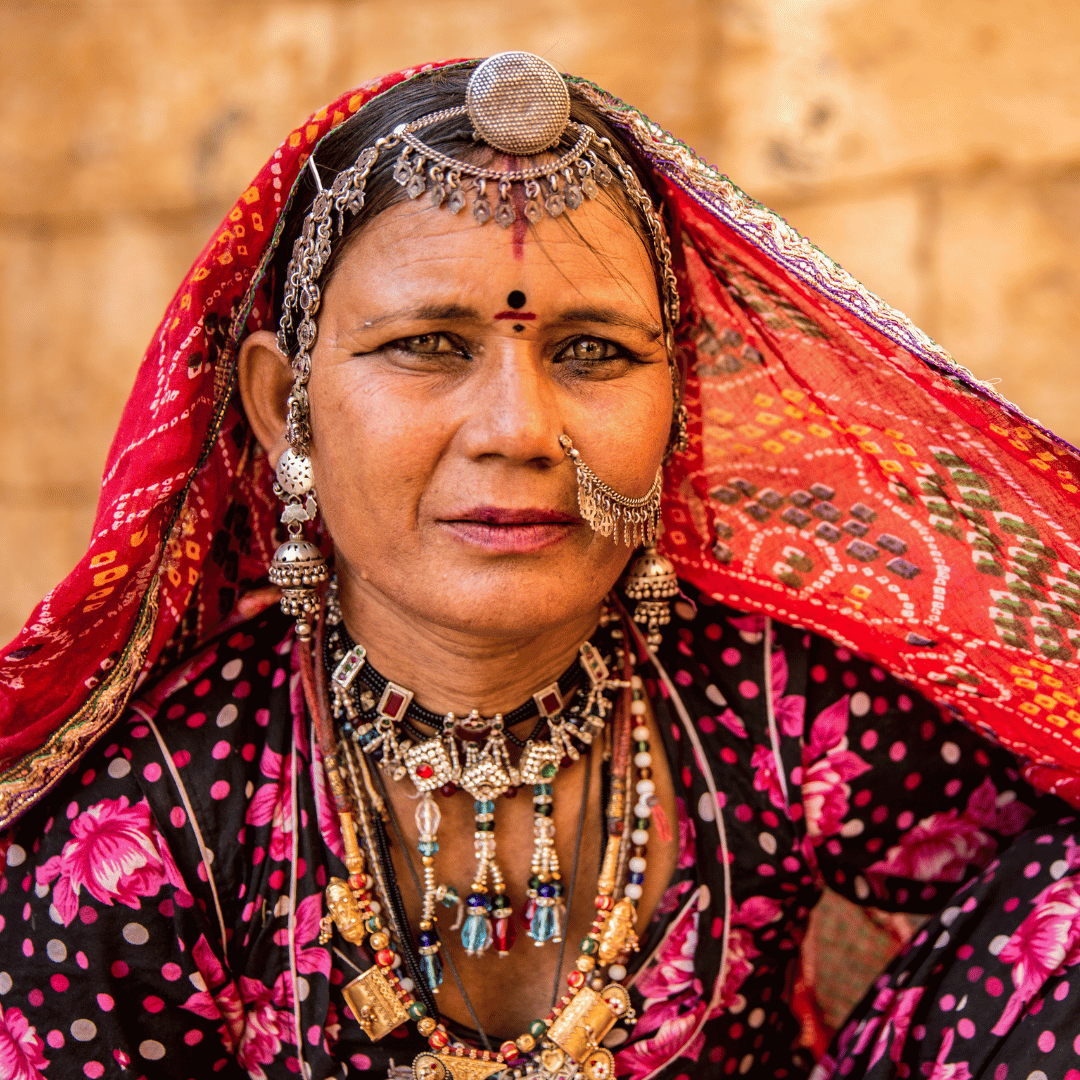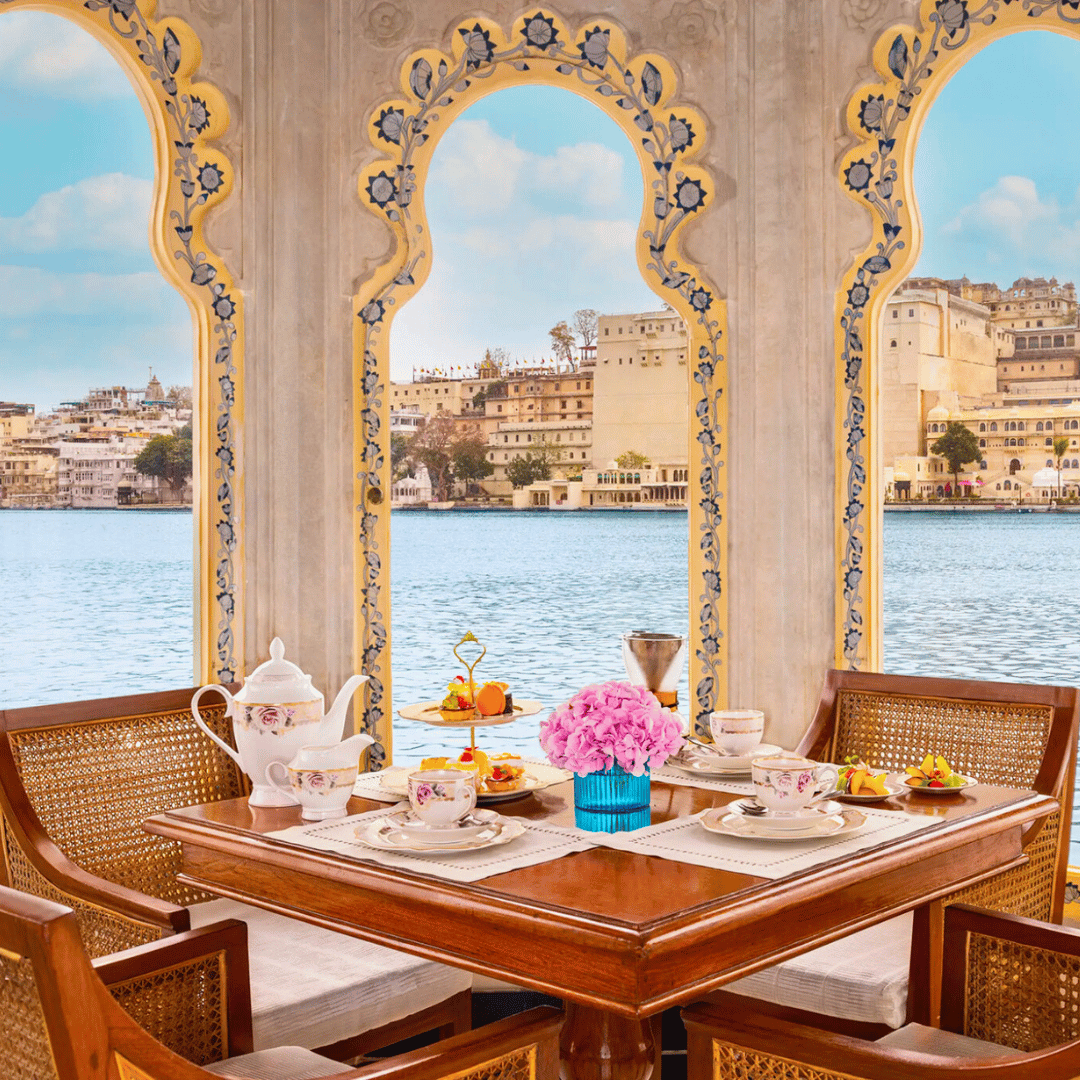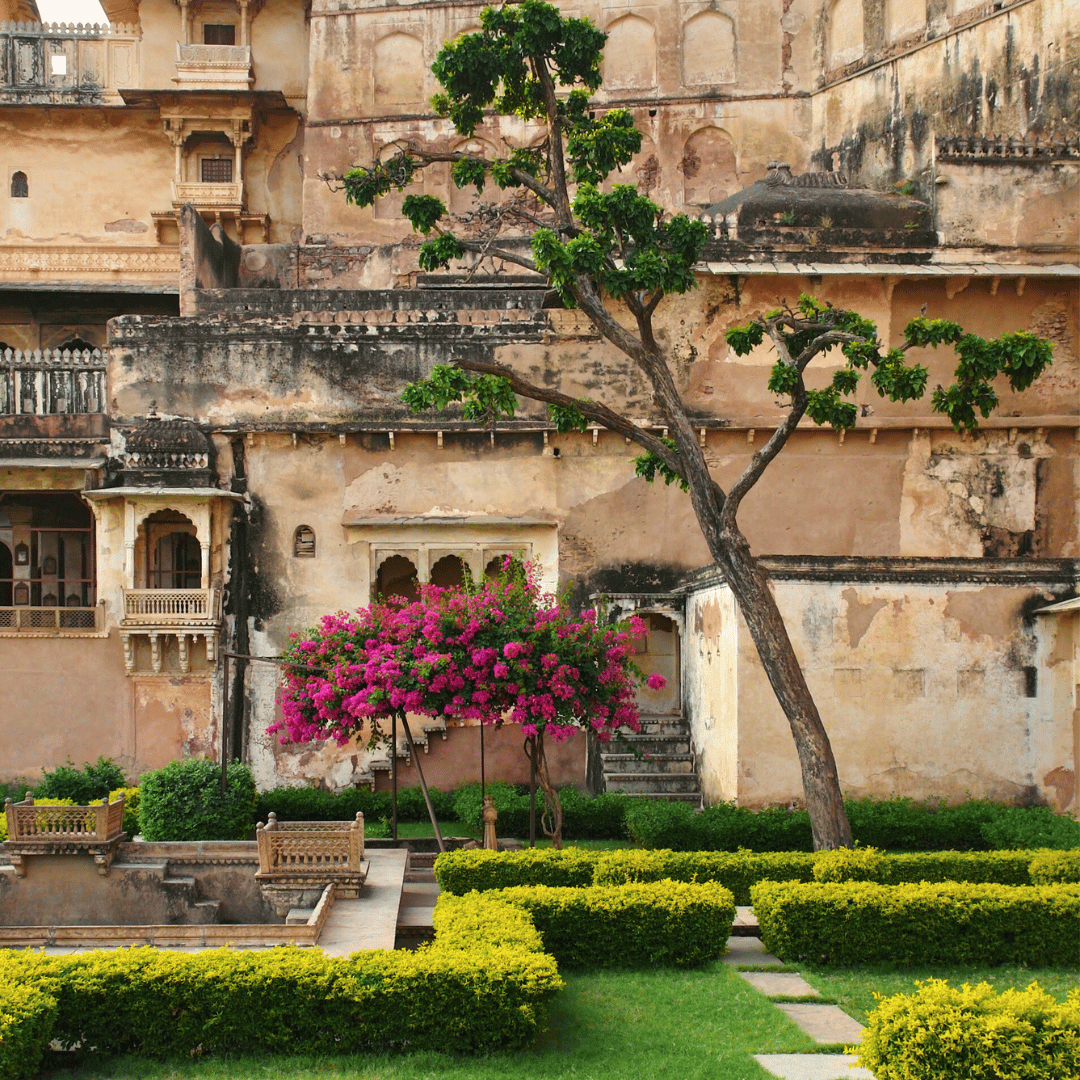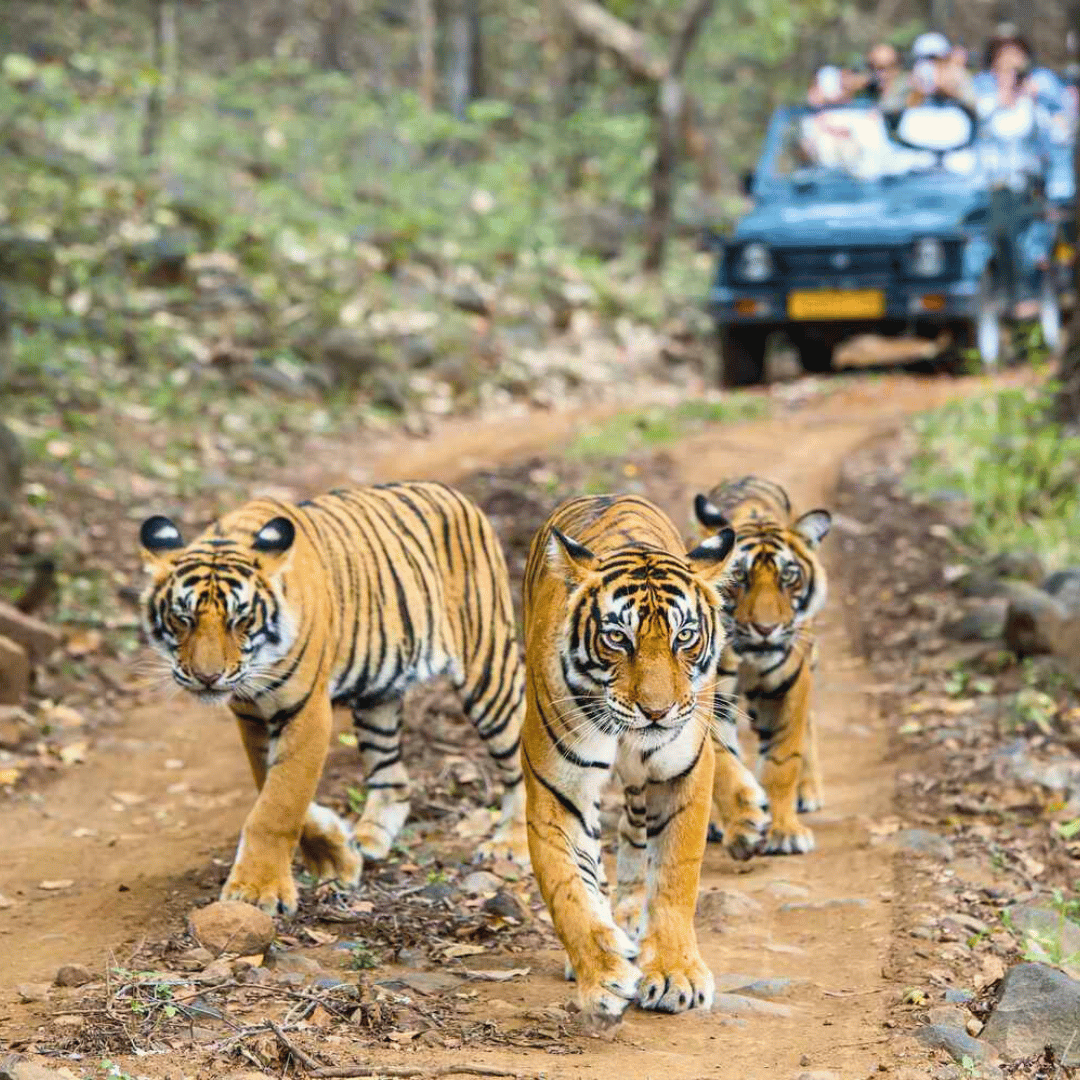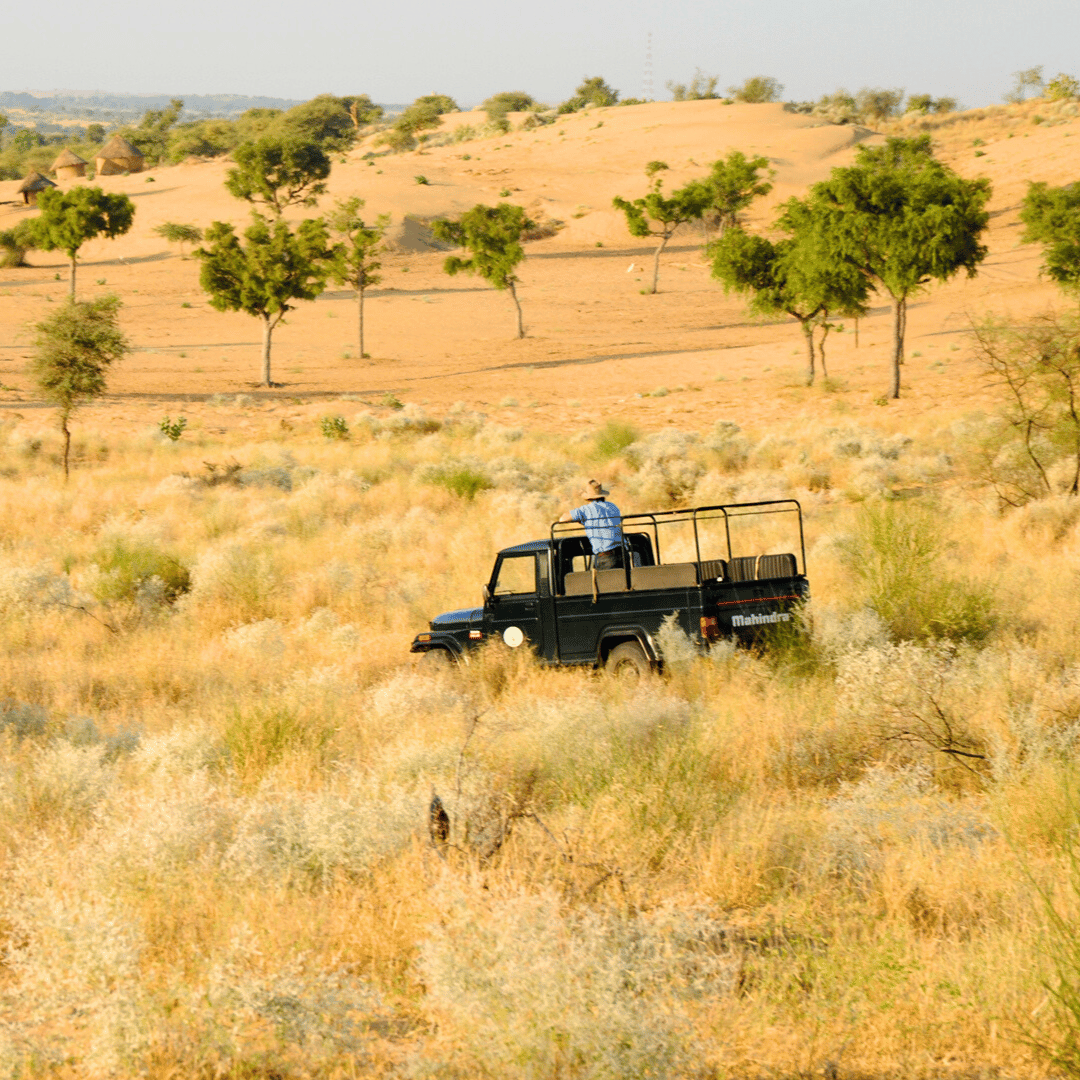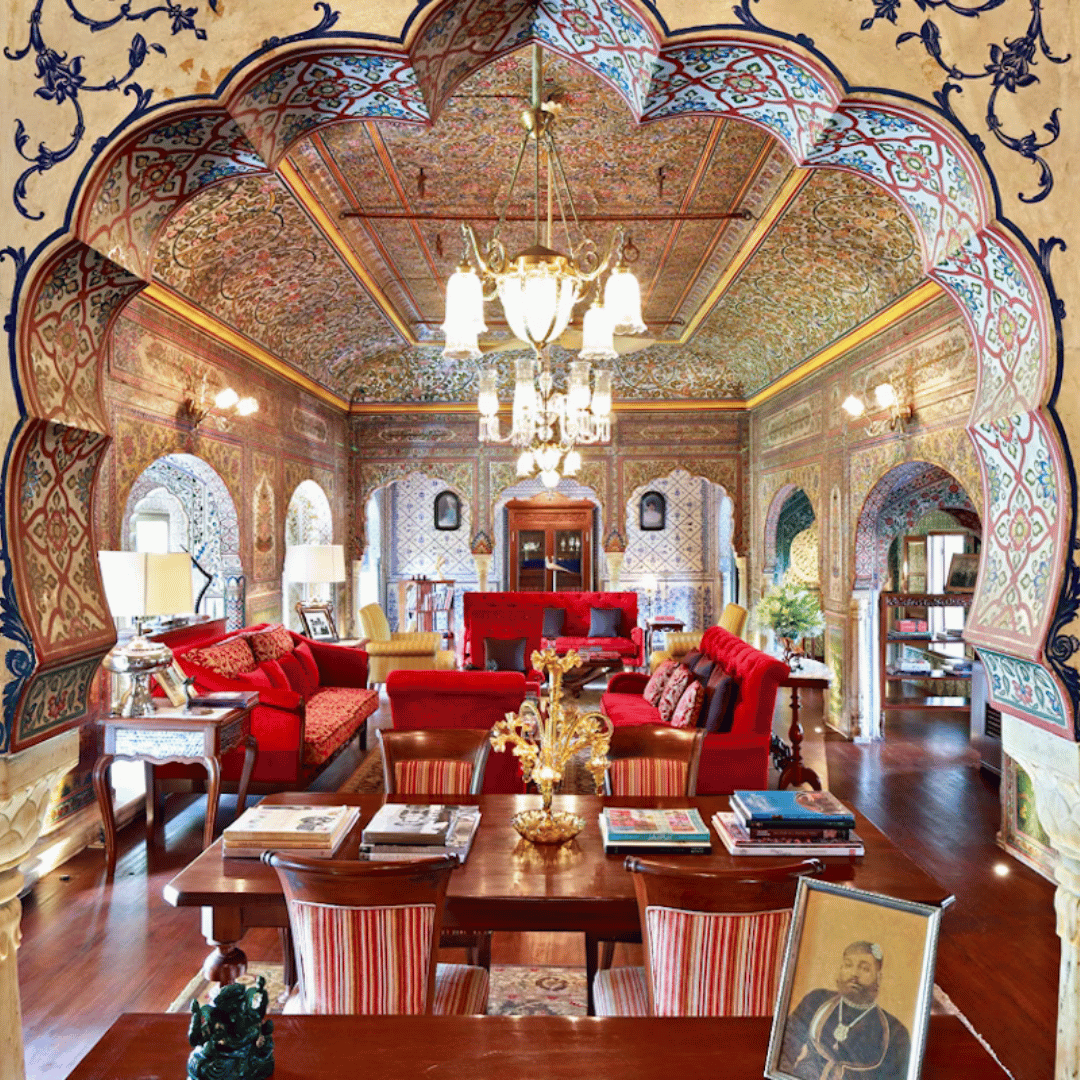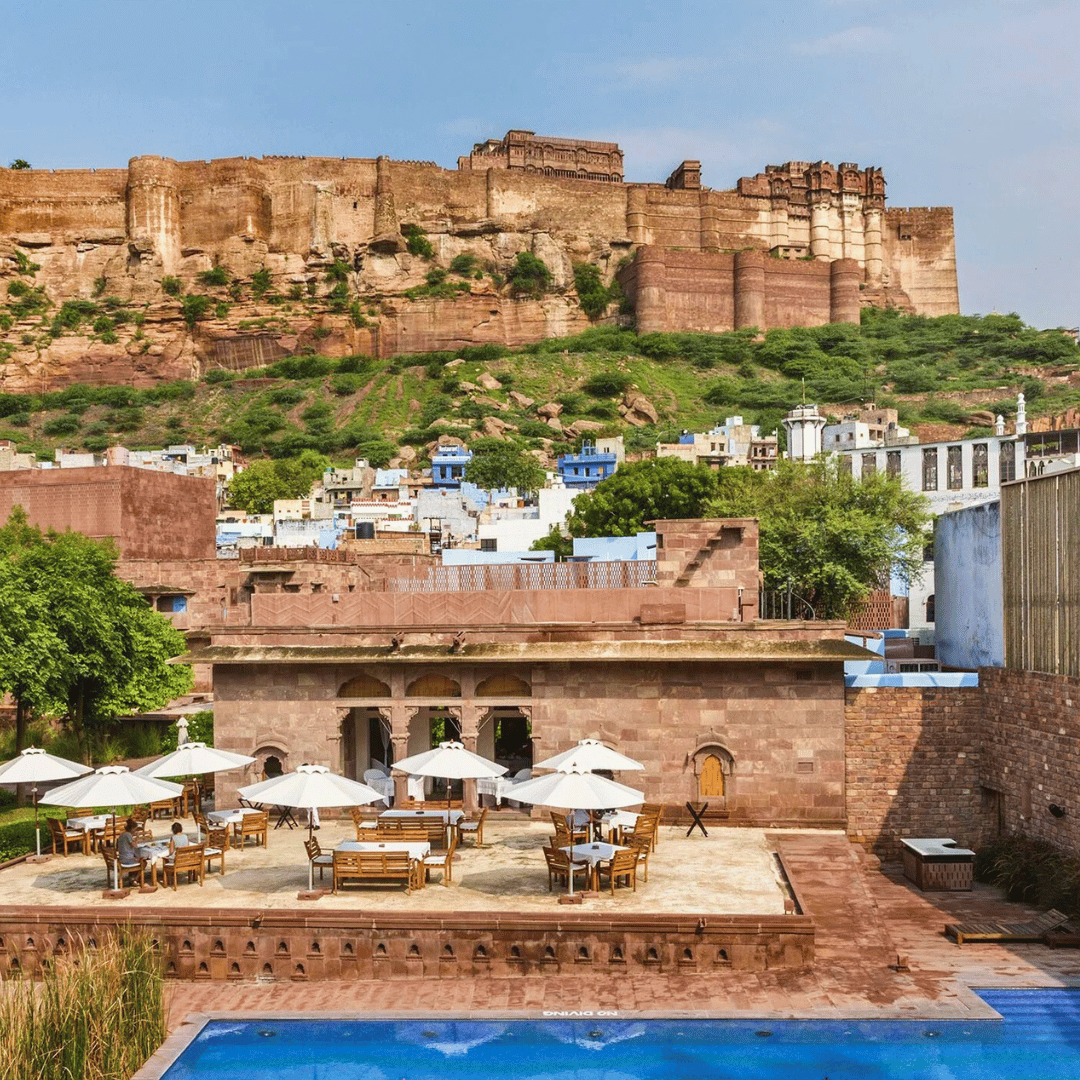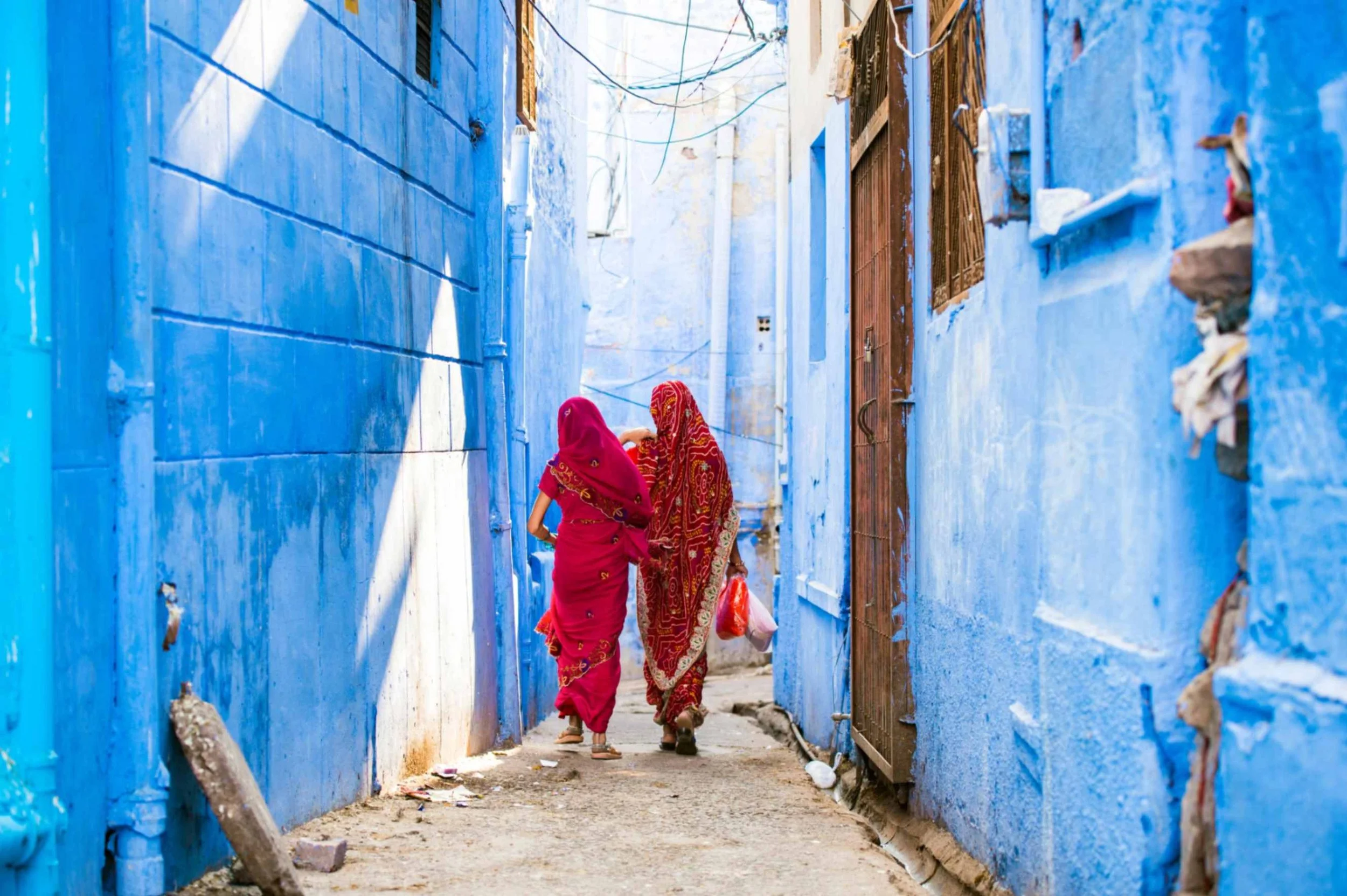
Private Rajasthan Tours
Bespoke Packages Crafted With Care
Rajasthan is one of India’s most distinctive regions, shaped by historic cities, desert landscapes and centuries of royal influence. Travellers are drawn to the rose coloured streets of Jaipur, the blue quarters of Jodhpur, the sandstone towns of Jaisalmer and the lakeside setting of Udaipur. Across the state, you’ll find impressive forts, detailed palaces, working bazaars and strong artistic traditions that continue to shape daily life. Known as the Land of Kings, a carefully crafted Rajasthan tour can take you through ancient desert settlements, family run havelis, rural communities and well known cultural centres. You might travel across the Thar Desert, walk through old city markets or get off the beaten track and spend time in smaller towns known for stepwells, textiles and regional crafts.
Depending on your preferences, our Rajasthan tour packages can be shaped to suit short journeys or extended routes, with stays in heritage hotels and boutique properties that reflect the rich history of each area. Private Rajasthan tours with India Unbound are designed for flexibility, comfort and local insight. As a Melbourne based operator, we have been creating private Rajasthan itineraries for Australian travellers since 2007. Each journey includes a dedicated driver, thoughtful pacing and accommodation chosen for quality and character, giving you a clear and unhurried experience of Rajasthan and North India.
Choose Your Rajasthan Tour Style
Rajasthan Travel Advice For First Time Visitors
-
Before travelling to Rajasthan, it's worth understanding what makes the region unique and how it differs from other parts of India. Known as the Land of Kings, Rajasthan is deeply rooted in its royal heritage. The state's identity is shaped by centuries of Rajput rule, and this is reflected in its architecture, customs, and sense of pride. Unlike the lush greenery of Kerala or the bustling metropolises of North India, Rajasthan is defined by vast deserts, arid hills, and dramatic fort towns where history feels very much alive. Cities like Jaipur, Jodhpur, and Udaipur are not only visually striking but culturally immersive - where daily life continues in and around grand palaces, ancient temples, and centuries-old markets.
Travel in Rajasthan tends to be slower and more reflective. Distances between destinations are long, and though the roads are improving, journeys can still take several hours, especially when travelling between smaller towns and rural regions. Hiring a private car with a driver is the most efficient and comfortable way to get around, allowing you to stop in lesser-known places and take in the ever-changing desert scenery. Rajasthan is also one of the most tourism-friendly states in India, with a wide range of accommodation options, from luxury palace hotels to charming heritage havelis and eco-conscious desert camps. The state has long catered to international travellers, so service is generally warm and welcoming, and many experiences - from guided village walks to curated shopping tours - are tailored for curious visitors.
What sets Rajasthan apart is its deep connection to tradition. Local crafts like miniature painting, block printing, blue pottery, and jewellery-making are still practised by artisans in much the same way they have been for generations. Attending a folk music or dance performance, visiting a rural fair, or exploring a local artisan’s workshop often feels less like a staged activity and more like an authentic part of daily life. Tipping is appreciated, especially in hotels and for local guides or drivers, and bargaining is part of the shopping culture in markets. With its grand architecture, layered history and deeply rooted customs, Rajasthan invites travellers to slow down, look closely, and immerse themselves in a world where the past and present exist side by side.
-
The primary language spoken in Rajasthan is Rajasthani, a group of Indo-Aryan dialects with regional variations such as Marwari, Mewari, Shekhawati, and Dhundhari, depending on the area. While Rajasthani is widely spoken in daily life, it does not have official status as a separate language in the Indian constitution and is generally considered a dialect of Hindi.
Hindi is the official language of the state and is used in government, education, and formal communication. Most locals understand and speak Hindi fluently, and English is also spoken, particularly in cities, tourist areas, and by those working in hospitality and travel. As a traveller, you’ll find it relatively easy to get by with English in hotels, restaurants, and major sights, though learning a few Hindi phrases can be helpful and appreciated.
-
The best time to visit Rajasthan is between October and March, when the weather is cooler and more comfortable for travel. During these months, daytime temperatures generally range from 20°C to 30°C, making it ideal for exploring forts, palaces, and desert landscapes without the intense heat. December and January are the coldest months, especially in desert areas like Jaisalmer and Bikaner, where nights can get quite chilly. From April to June, Rajasthan experiences extreme summer temperatures, often exceeding 40°C in many parts of the state. Travel during this time can be challenging, especially in the desert regions, though hill stations like Mount Abu offer some relief. The monsoon season runs from July to September, bringing short bursts of rain that cool the air and add a touch of green to the landscape, though the state remains largely dry. With its mostly arid climate, Rajasthan is best enjoyed during the cooler months when the weather is pleasant and outdoor experiences are at their best.
-
When visiting Rajasthan, tourists should dress in a way that is both comfortable for the climate and respectful of local culture. Lightweight, breathable clothing such as cotton or linen is ideal for most of the year, especially in the warmer months when temperatures can be high and the air dry. Loose-fitting trousers, long skirts, and shirts with sleeves help protect against the sun and are also appropriate for visits to religious sites and rural areas.
While Rajasthan is relatively relaxed, it’s best to dress modestly - covering shoulders, cleavage, and knees is generally recommended, particularly in smaller towns and around temples. A light scarf or shawl is useful for sun protection and can be used to cover your head when entering sacred spaces.
During winter (December to February), especially in desert areas like Jaisalmer or Bikaner, mornings and evenings can be quite cold, so bring a warm layer like a jumper or jacket. If you're planning desert excursions or wildlife safaris, closed shoes, a sun hat, and sunglasses are recommended. Overall, aim for practical, respectful, and season-appropriate clothing to ensure a smooth and enjoyable experience.
-
Rajasthani cuisine is shaped by its arid climate, royal heritage, and resourceful culinary traditions. It features bold flavours, hearty ingredients, and a reliance on pulses, grains, dried spices, and dairy due to the scarcity of fresh vegetables in many parts of the state. Signature dishes include dal baati churma (lentils with baked wheat balls and sweetened crushed wheat), gatte ki sabzi (gram flour dumplings in spiced yoghurt curry), and ker sangri (a tangy desert bean stir-fry). Meat dishes are also popular, particularly laal maas, a fiery mutton curry once favoured by the Rajput warriors. The use of clarified butter (ghee), dried chillies, and pickles adds depth and heat to many meals, while sweets like ghewar, mawa kachori, and moong dal halwa are rich and satisfying.
For tourists, Rajasthani food is a rewarding part of the travel experience. Many heritage hotels and local eateries serve traditional thali - plated meals with a variety of small dishes - that are an excellent way to sample the cuisine. Vegetarian options are widely available and often just as flavourful as the non-vegetarian ones. Food is typically on the spicier side, but most places catering to travellers are happy to adjust spice levels on request. Street snacks like pyaaz kachori, mirchi bada, and rabri offer a delicious insight into everyday local flavours.
-
The ideal amount of time to explore Rajasthan depends on your interests, but 10 to 14 days is generally recommended for a well-rounded itinerary that includes cities, countryside, and wildlife.
6 - 7 Days: Great for a shorter introduction, covering highlights like Jaipur, Jodhpur, and Udaipur, with quick visits to key forts, palaces, and bazaars. You’ll see the grandeur of Rajasthan but may not have time for offbeat or rural experiences.
10 - 14 Days: Ideal for a balanced journey. In addition to the major cities, you can include Jaisalmer and the Thar Desert, rural stays in places like Deogarh or Narlai, and time in national parks such as Ranthambhore or Jawai/Leopard Hills, known for tiger and leopard sightings.
15+ Days: Perfect for travellers wanting to go deeper, and spend less time driving between destinations. You can explore less-visited regions like Shekhawati, Bikaner or Bundi, spend longer in wildlife areas like Keoladeo Bird Sanctuary or Kumbhalgarh.
Rajasthan’s mix of culture, architecture, and wildlife is best enjoyed at a slower pace, with time to appreciate both its iconic landmarks and quieter corners. For curious travellers with more time up their sleeves, we recommend extending into neighbouring states like Gujarat or Madhya Pradesh for more nature and heritage.
Iconic Things To Do In Rajasthan
Create Your Rajasthan Tour With India Unbound
Established in 2007, India Unbound is an award-winning travel company specialising in custom-made journeys and private tours to India. With more than two decades of experience exploring this fascinating nation, we create tailor-made itineraries for discerning travellers looking for a real adventure.
When you start to research a trip to India, it’s easy to feel overwhelmed by the seemingly endless possibilities. At India Unbound, we’ve made this process easy. To see India, we simply need you to tell us relevant information about yourself and the type of travel experience you are looking for - whether it’s a wish list of places you want to visit, a style of travel, a particular interest or theme that you want to explore, or all of these factors. Using this information, we curate a custom-made India private tour just for you. It’s that simple.
Rajasthan Hotel Recommendations
